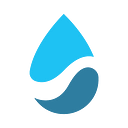“There are not enough scientists to monitor the world’s reefs, and now anyone can help collect valuable coral data.” -CoralWatch
For SEAstream #29, we’re excited to present an organisation that focuses on a topic near and dear to our hearts. Join us for a conversation about citizen science in action from a well-established ocean organisation: CoralWatch!
On February 23rd at 12:00pm UTC, we’ll be going live on Instagram to talk with CoralWatch about their citizen science initiatives. Sophie Kalkowski-Pope, CoralWatch Assistant and Social Media Manager, will be answering any and all questions about their programs and mission.
CoralWatch is a non-profit citizen science program that was founded in 2002 at The University of Queensland in Australia. It aims to collect data on coral reefs, coral bleaching, and climate change from volunteers around the world. Well-known for their Coral Health Chart, CoralWatch has long been working towards standardising measurement tools to quantify coral health. The Coral Health Chart tool is simple and intuitive, making it easy to use for just about anyone.
The organisation offers a “Do It Yourself” guide with instructions (in 13 languages!) that anyone can download to gather information about the health of their local reef. Any individual, including divers, scientists, and even tourists can apply for a copy of their standardised Coral Health Chart. After collecting the data, individuals can submit their findings to CoralWatch’s online database for coral health.
CoralWatch works to create a public understanding of just how important the health of these reefs is through education and outreach. They’ve worked with schools, conservation groups, tourists, scientists, and dive centres to gather coral health information from around the world. CoralWatch has also partnered with many community organisations to host educational workshops on data collection and the importance of citizen science. As climate change worsens rapidly, and ocean conditions seem to be changing every day, data collection over large swaths of the sea becomes increasingly difficult. Citizen science initiatives like this one can offer a solution to the typical challenges raised by traditional data collection.
Want to join in on the discussion of citizen science to help save our seas? Send us your questions for Sophie from CoralWatch on Twitter (@sea_token), and you’ll have a chance to win $20 worth of $SEA. Don’t forget to tune in on our Instagram (@sea_token) for SEAstream #29 on February 23rd at 12:00pm UTC.
